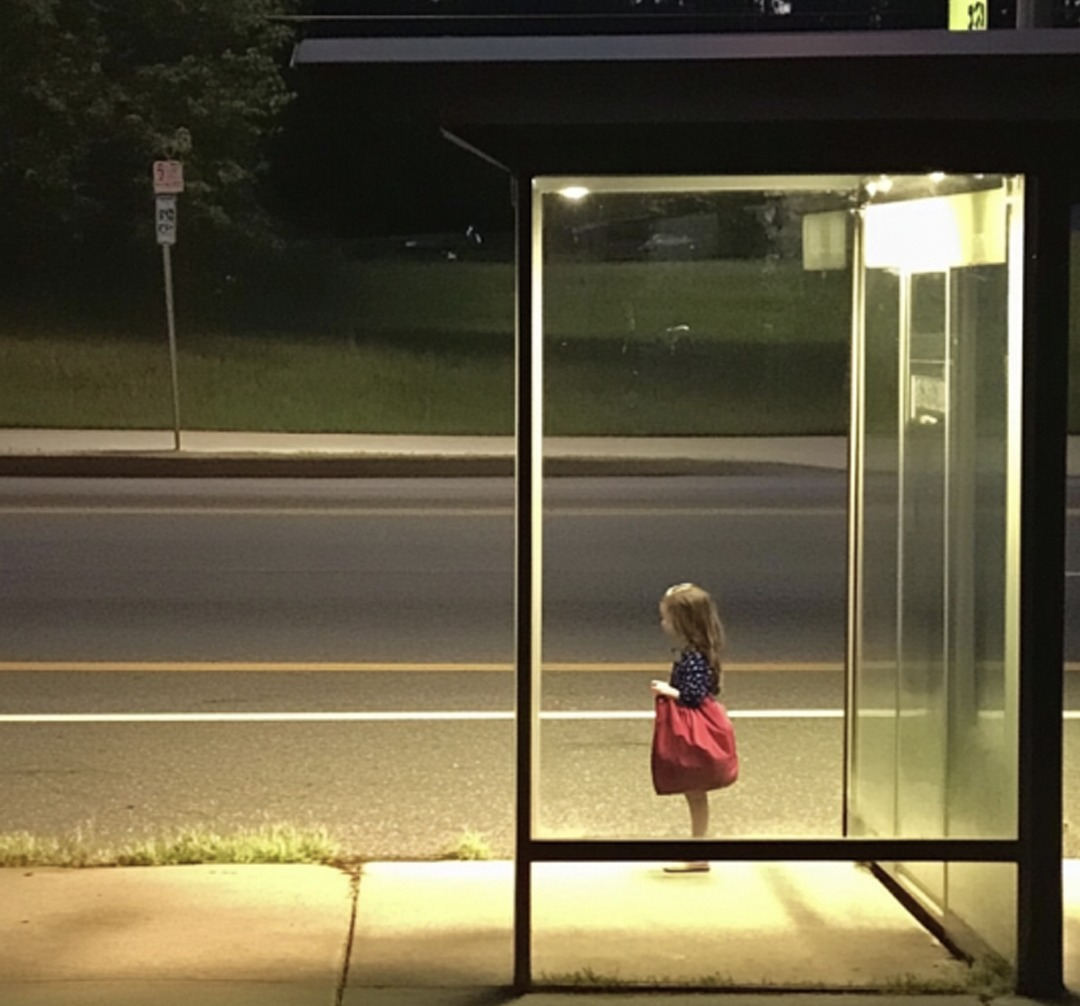When I moved to my new neighborhood, I thought I was finally getting a break. At 32, single, and weary from the chaos of my old life, I longed for the quiet embrace of this sleepy little town. The towering maple trees lining the streets and the rhythmic symphony of nature offered a stark contrast to the relentless pace of my past life as a journalist.
The houses on my street stood as aged storytellers, their weathered facades whispering secrets of decades past. I had barely begun unpacking on my first evening when I noticed her—a little girl at the bus stop across the street. She couldn’t have been more than eight years old. Clutching a worn red bag tightly to her chest, she stood motionless, her gaze distant and her small frame cloaked in an oversized jacket.
At first, I assumed she was waiting for someone. But the next evening, she was there again, in the same spot, her expression untouched by time. By the third evening, my curiosity overcame my hesitation. Determined to understand her story, I stepped onto my porch. But before I could approach her, she turned and ran, her red bag bouncing against her back like a flag of urgency.
The mystery deepened the next morning when I found her bag on my doorstep. Inside were handmade treasures—dolls sewn from fabric scraps, tiny cars pieced together with wire, and bottle cap houses. At the bottom of the bag was a crumpled note that read:
“My name is Libbie. I make these toys to pay for my grandma’s medicine. She’s very sick, and I don’t know what to do. My mom and dad died in a car crash three months ago. Please, if you can, buy them. Thank you.”
The words hit me like a wave. Here was a child, barely old enough to understand loss, carrying burdens no one her age should bear. That evening, I waited for her. When she appeared, hesitant and wary, I invited her inside.
Over cookies and milk, she opened up about her struggles. She had lost both parents in a tragic accident and was now caring for her ailing grandmother. Selling her handcrafted toys was her only way of providing for their needs. Her resilience moved me deeply.
Determined to help, I shared her story online. The response was overwhelming. Orders poured in for her toys, and donations began to cover her grandmother’s medical expenses. But the most significant change came a year later, when my fiancé, Dave, and I adopted Libbie. Our once-quiet home now buzzes with her laughter and creativity.
Libbie’s toys are now sold through a small website we created together. She pours her heart into each piece, transforming her past struggles into symbols of hope and love. Her grandmother, now receiving proper care, lives with us, and our family is a picture of resilience and unity.
Every evening, Libbie still visits the bus stop—not in sorrow, but in remembrance. “It’s nice to remember where I came from,” she says, “but even nicer to know I have a place to come home to.”

